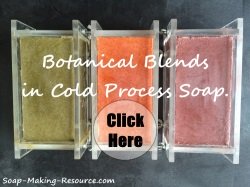Cottonseed Oil
Although some soap makers use cottonseed oil to make soap, I recommend that you do not. Unfortunately, there are several negatives that cause this oil to be unappealing for soap making. We will talk about those negatives below.
Here are the approximate fatty acid, iodine, and SAP values for cottonseed oil:
| Lauric | 0% |
| linoleic | 52% |
| linolenic | 1% |
| Oleic | 18% |
| Palmitic | 18% |
| Ricinoleic | 0% |
| stearic | 13% |
| myristic | 0% |
| Iodine Value | 108 |
| SAP Value Sodium Hydroxide | .138 |
| SAP Value Potassium Hydroxide | .194 |
Here are some of the characteristics that you will see in your soap when using cotton seed oil for soap making:
| Bubbly lather | No |
| Creamy/Stable lather | Yes |
| Cleansing | mild |
| Conditioning | Yes |
| Hardness | No |
Cottonseed oil is extremely vulnerable to rancidity. Some soap makers report a quick onset of DOS (dreaded orange spots) caused by the oil becoming rancid. If you use strong synthetic preservatives instead of the weaker natural preservatives this will not be too big of a problem for you. If, however, you want your product to remain 100% all natural then using cottonseed oil is almost out of the question unless you know your product is going to be used right away.
|
Sign Up Today!
*Your information is SAFE with us! |
There's also a very good chance that your cottonseed oil was exposed to harmful pesticides. Everyday there are more and more farmers that are starting to "go organic", but the cotton industry, is not quite there yet. Try as I might, I cannot find any organic form of this ingredient that ensures the oil is 100% pesticide free.
Finally, this particular oil takes a longer time for saponification to occur. If you're the type of soap maker that uses a stick blender this shouldn't be a problem for you, but if you like to stir your batches by hand, be prepared to wait a bit longer then normal to reach trace.
So, with all these negatives, are there any positives at all when it comes to cottonseed oil? Actually... Yes. It does moisturize relatively well, has good conditioning properties, and produces a nice lather. I, however, feel that these small pluses do not even come close to outweighing some of the negatives.
After all, you can just use avocado oil or olive oil if you're looking for a moisturizing ingredient and coconut oil or castor oil if you want an improved lather. There's really no need to use cottonseed oil at all!
Return from cottonseed oil to the soap making ingredients main page.











